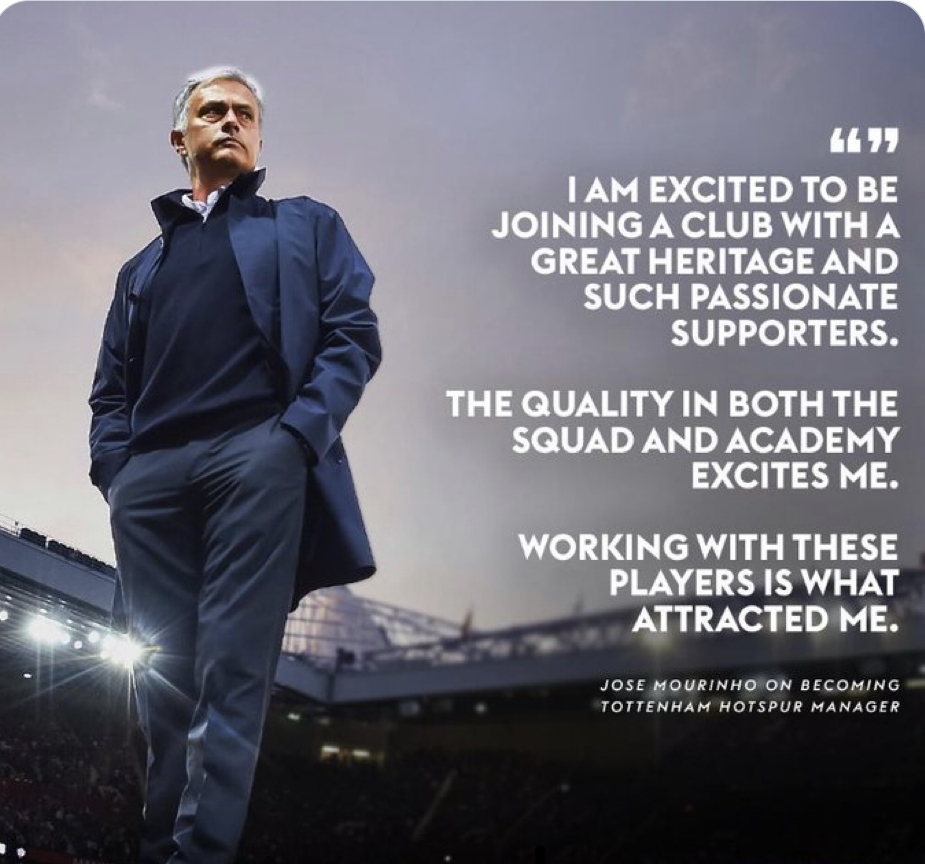
Jose Mourinho Appointed Tottenham boss
20th Nov 2019 @ 09:29 By: UgbanaMauricio Pochettino shook his head dismissively when asked if he was worried about his future. He spoke with steely determination when discussing the challenge of pulling Spurs out of their slump. He smiled when recalling the "enormous happiness" of his first game in charge. He did not seem like a man contemplating the end. But three weeks on from what has turned out to be one of his final interviews as Tottenham manager, that is where he finds himself. The Pochettino era is over. The next one, under Jose Mourinho, has already begun. Pochettino departs with Spurs 14th in the Premier League table having taken just 14 points from their first 12 games of the campaign. Add in the final 12 games of last season and it's 25 points from 24. Amazingly, they have not won away from home in the Premier League since January. It is a dismal run. There can be no hiding from that. But Pochettino is entitled to feel aggrieved that, only a few months after steering Spurs to a Champions League final, he has not been granted more time to turn things around. That, after all, is exactly what he did when he took the job in the first place. The club he walked into in 2014 is very different from the one he leaves behind. Pochettino became Tottenham's sixth manager in 10 years when he succeeded Tim Sherwood in May 2014. The bloated squad was a case study in muddled recruitment and the fanbase was disillusioned. Spurs looked a long way from competing with the best teams in the country - let alone in Europe - but Pochettino soon changed that. The first season was transitional, but the next four yielded four consecutive top-four finishes, twice as many as Spurs had managed in the previous 22. Pochettino changed Tottenham's identity, not through expensively-acquired signings but through a devotion to the development of young players proud to wear the shirt. Harry Kane and Dele Alli became the standard-bearers for Pochettino's Spurs and they were not the only ones to blossom under his guidance. The list of players he has improved is a long one. It includes almost every member of the current squad and - in Kyle Walker, Kieran Trippier and Mousa Dembele - a decent number of the departed too. Those players have all contributed to the club's progress over the last five years, but it's Pochettino who made it all possible. There was no silverware - no crowning achievement in Madrid - but Pochettino succeeded in transforming the club's psyche in a way his predecessors could not. At their best, Pochettino's Spurs were the antithesis of 'Spursy', a fiery and fearless young side capable of beating the very best - and assembled at a fraction of the price of their rivals. Those traits were most apparent during the 2016/17 campaign, when Spurs finished as runners-up with a points total that would have been enough to win the title in two of the previous three seasons. But what happened after that, when they kept their place in the Champions League despite almost two years in Wembley limbo, was just as impressive. The circumstances could hardly have been tougher, but even last season, when Spurs failed to sign a single new player and the delays over their new stadium dragged on, Pochettino did not just keep them on track, he somehow propelled them to new heights. Their run to the Champions League final ended in heartache, but it confirmed their status as a European force. Pochettino is not exempt from blame for the rot that set in either side of that run, of course. But many of the problems that caused their form to deteriorate were not of his making. When the squad required investment, it was not him who ruled against it. When the revamp did finally begin last summer, it was not him who dragged his feet in the transfer market. It was him, though, who suffered the consequences. The profile of the side changed, the average age shooting up from under 25 years old to over 27, and it became increasingly difficult for Pochettino to replicate the high-octane football of his first few years in charge. The issues were compounded by the uncertainty surrounding individual players. Toby Alderweireld, Jan Vertonghen and Christian Eriksen were all allowed to enter the final years of their contracts, and a dressing room once united behind its manager became fractured. The cracks could soon be seen in Tottenham's performances out on the pitch. Ultimately, it's those performances which have cost Pochettino his job. Tottenham will hope Mourinho can put the pieces together again, that he can bring them the trophies that eluded the man who came before him. But the Pochettino era - and the transformation that came with it - will be difficult for anybody to match.